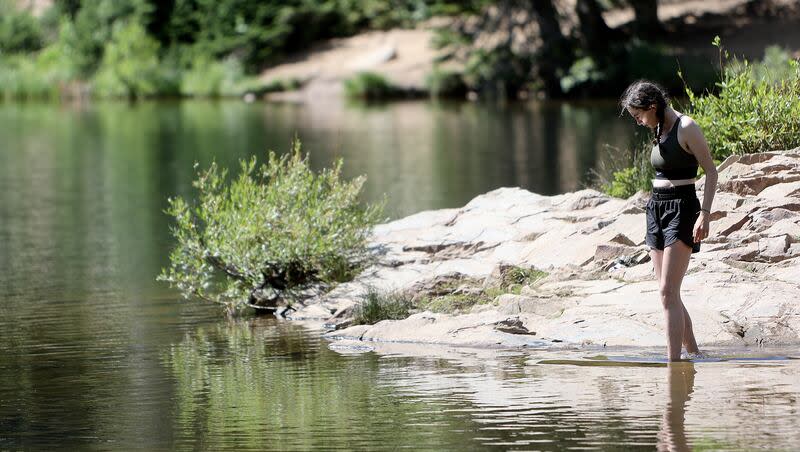Even as little as 10 minutes in nature can relieve mental illness symptoms, study finds

Decades of published research shows that whether it’s a brief stroll through a city park or multiple days spent in the wilderness, exposure to nature has positive mental health impacts.
A recent study by University of Utah investigators found that spending time in nature — even as little as 10 minutes — can yield short-term benefits for adults with mental illness.
“We know nature plays an important role in human health, but behavioral health and health care providers often neglect to think about it as an intervention,” according to Joanna Bettmann, a professor at the University of Utah College of Social Work and lead author of the study.
The study, published in the peer-reviewed journal Ecopsychology, notes that nature exposure “does not require the oversight of health care professionals, is accessible, and is affordable. Focusing on increasing humans’ exposure to nature has the potential to ease overstrained health care systems throughout the globe.”

Even short exposure to urban nature is beneficial and it is accessible for most people.
“Ten minutes in urban nature is far less intimidating, expensive and time-consuming for people who do not have the time, resources, interest, community support or equipment to venture into the wilderness for days or weeks,” the authors wrote.
The analysis also indicated that water-based outdoor spaces — rivers, lakes, oceans — as well as camping, farming and gardening activities had the greatest positive effect. Urban nature, mountains and forests also offered significant effects.
“All of these different types of outdoor spaces delivered positive results, which underscores the importance of preserving green spaces in our natural and built environments,” said Bettmann in a statement.
Bettmann and her multidisciplinary research team analyzed 45 published studies selected among 14,168 studies on point. The selected studies included a total of 1,492 adult participants with a diagnosed mental illness. Some of the examined experiences included structured therapeutic interventions, while some involved nature experiences alone.
Co-authors of the study include Scott Couch and Dorothy Schmalz with the University of Utah’s College of Health’s Department of Parks, Recreation and Tourism. The research was funded, in part, by Nature and Human Health Utah, a nonprofit established by Schmalz and other University of Utah faculty to explore ways to bridge the gap between nature and health.

“The relationship between nature and mental health is all over the place. The interventions vary from study to study, and the outcomes therefore are also all over the place,” said Schmalz, a professor who chairs the Department of Parks, Recreation & Tourism.
“The work that Joanna did here in bringing it all together and culling through it and really figuring out what the overall message seems to be is an incredibly valuable contribution to understanding what this connection is.” Schmalz said in a statement.
Utah is an ideal setting to further explore how the natural environment affects human health and wellbeing, Schmalz said.
“Here we are surrounded by all these extraordinary natural resources,” she said, continuing, “Having this kind of knowledge to work nature into behavioral and mental health can help make Utah a place that’s known for taking advantage of the outdoors to be healthy mentally, physically and emotionally.”

